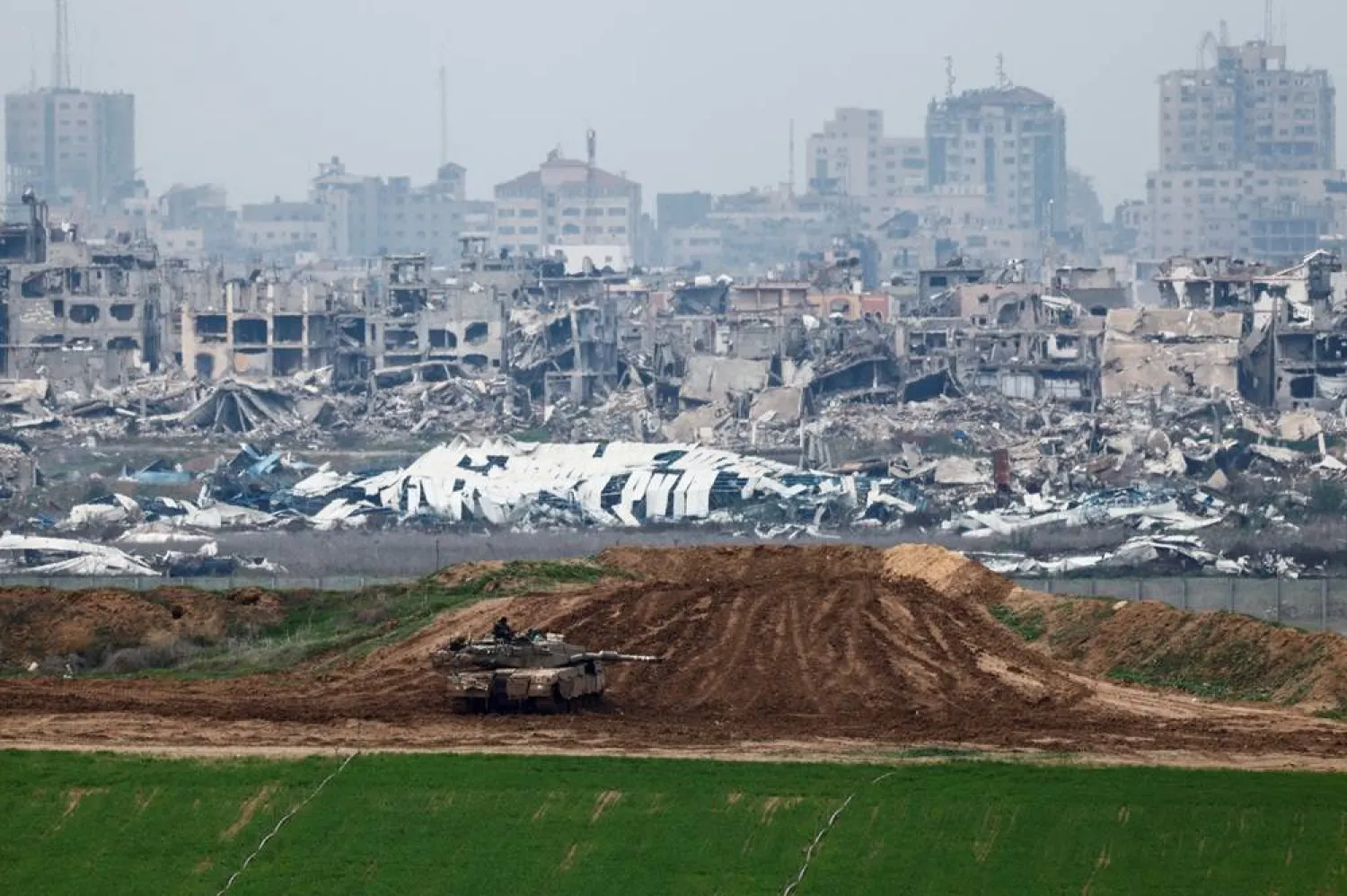Israeli Prime Minister Benjamin Netanyahu said on Tuesday that if Hamas did not release Israeli hostages by noon on Saturday a fragile ceasefire in Gaza would end and the Israeli army would resume its offensive in the Palestinian enclave until the group is defeated.
"In light of Hamas' announcement of its decision to violate the agreement and not release our hostages, last night I ordered the IDF to gather forces inside and around the Gaza Strip," Netanyahu said, speaking after a meeting of his security cabinet.
"This operation is being carried out at this time. It will be completed in the very near future," he said in a statement.
Hamas has begun releasing some hostages gradually under the first phase of a ceasefire reached last month, but said on Monday it would not free any more until further notice, accusing Israel of violating the terms with several deadly shootings as well as hold-ups of some aid deliveries in Gaza.
US President Donald Trump, a close ally of Israel, said in response that Hamas should release all the hostages held by the group by midday on Saturday or he would propose cancelling the Israel-Hamas ceasefire, which took effect on January 19.
"If Hamas does not return our hostages by Saturday noon - the ceasefire will end and the IDF will return to intense fighting until Hamas is finally defeated," Netanyahu said.
It was not immediately clear if he meant the return of hostages who would be due to be released on Saturday, or all of those still held in the Palestinian enclave.
A Hamas official said on Tuesday that Israeli hostages could be brought home only if the ceasefire was respected, dismissing the "language of threats" after Trump said he would "let hell break out" if they were not freed.
"Trump must remember there is an agreement that must be respected by both parties, and this is the only way to bring back the (Israeli) prisoners. The language of threats has no value and only complicates matters," senior Hamas official Sami Abu Zuhri told Reuters.
Israel denies holding back aid supplies and says it has fired on people who disregard warnings not to approach Israeli troop positions.
Netanyahu vowed earlier that Israel would ensure all its hostages were returned.
"We will continue to take determined and ruthless action until we return all of our hostages - the living and the deceased," he said following military confirmation of the death of one more Israeli during the Hamas-led attack that started the Gaza war 16 months ago.
An Israeli official, speaking on the condition of anonymity, said the prime minister met on Tuesday with the security cabinet, a select group of ministers, for almost four hours.
Gaza, one of the world's most densely populated areas, has been devastated by Israel's military offensive since October 2023 and is short of food, water and shelter, and in need of billions in foreign aid.
Trump has enraged Palestinians and Arab leaders and upended decades of US policy that endorsed a possible two-state solution in the region by trying to impose his vision of Gaza. He has said the United States should take over Gaza and move out its more than 2 million Palestinian residents so that the enclave can be turned into the "Riviera of the Middle East".
The forcible displacement of a population under military occupation is a war crime banned by the 1949 Geneva conventions.
Palestinians fear a repeat of what they call the Nakba, or catastrophe, when hundreds of thousands of Palestinians fled or were driven out during the 1948 war that accompanied Israel's creation. Israel denies they were forced out.
Gazans interviewed by Reuters criticized Trump for saying he would be prepared for "hell" to break out if all the Israeli hostages were not released by noon on Saturday.
"Hell worse than what we have already? Hell worse than killing? The destruction, all the practices and human crimes that have occurred in the Gaza Strip have not happened anywhere else in the world," said Jomaa Abu Kosh, a Palestinian from Rafah in southern Gaza, standing beside demolished homes.
The Gaza war has been paused under the ceasefire agreement between Israel and Hamas that was brokered by Qatar and Egypt with support from the United States.
More than 48,000 Palestinians have been killed in the war, the Gaza health ministry says, and nearly all of Gaza's 2.3 million population internally displaced by the conflict, which has caused a hunger crisis.
Some 1,200 people were killed in the October 7, 2023 Hamas-led attack on southern Israeli communities and about 250 were taken to Gaza as hostages, Israeli tallies show.
Trump's ideas have introduced new complexity into a sensitive and explosive Middle East dynamic, including the shaky ceasefire between Israel and Hamas.
United Nations Secretary-General Antonio Guterres said on X on Tuesday that a resumption of armed conflict should be avoided at all costs because that would lead to "immense tragedy".









